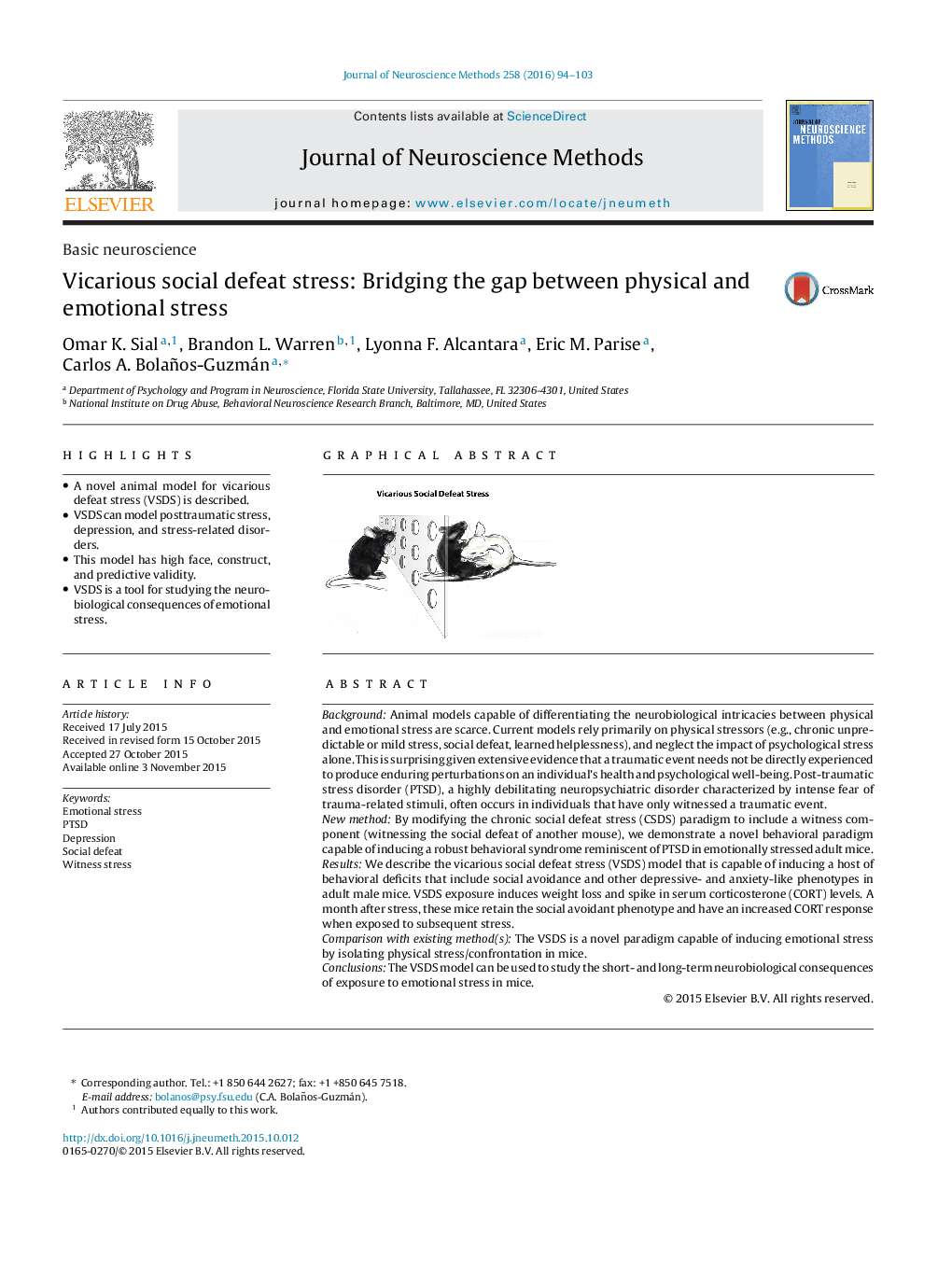| Article ID | Journal | Published Year | Pages | File Type |
|---|---|---|---|---|
| 6267862 | Journal of Neuroscience Methods | 2016 | 10 Pages |
â¢A novel animal model for vicarious defeat stress (VSDS) is described.â¢VSDS can model posttraumatic stress, depression, and stress-related disorders.â¢This model has high face, construct, and predictive validity.â¢VSDS is a tool for studying the neurobiological consequences of emotional stress.
BackgroundAnimal models capable of differentiating the neurobiological intricacies between physical and emotional stress are scarce. Current models rely primarily on physical stressors (e.g., chronic unpredictable or mild stress, social defeat, learned helplessness), and neglect the impact of psychological stress alone. This is surprising given extensive evidence that a traumatic event needs not be directly experienced to produce enduring perturbations on an individual's health and psychological well-being. Post-traumatic stress disorder (PTSD), a highly debilitating neuropsychiatric disorder characterized by intense fear of trauma-related stimuli, often occurs in individuals that have only witnessed a traumatic event.New methodBy modifying the chronic social defeat stress (CSDS) paradigm to include a witness component (witnessing the social defeat of another mouse), we demonstrate a novel behavioral paradigm capable of inducing a robust behavioral syndrome reminiscent of PTSD in emotionally stressed adult mice.ResultsWe describe the vicarious social defeat stress (VSDS) model that is capable of inducing a host of behavioral deficits that include social avoidance and other depressive- and anxiety-like phenotypes in adult male mice. VSDS exposure induces weight loss and spike in serum corticosterone (CORT) levels. A month after stress, these mice retain the social avoidant phenotype and have an increased CORT response when exposed to subsequent stress.Comparison with existing method(s)The VSDS is a novel paradigm capable of inducing emotional stress by isolating physical stress/confrontation in mice.ConclusionsThe VSDS model can be used to study the short- and long-term neurobiological consequences of exposure to emotional stress in mice.
Graphical abstractDownload high-res image (134KB)Download full-size image
